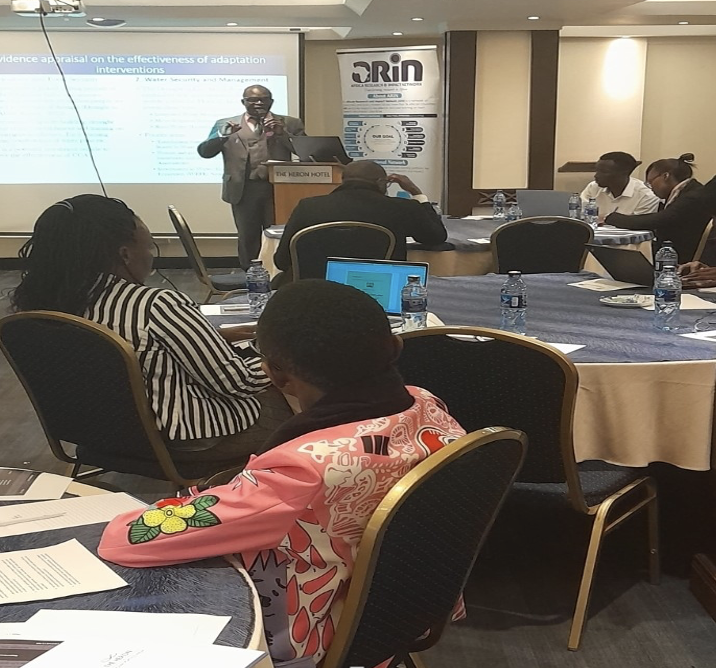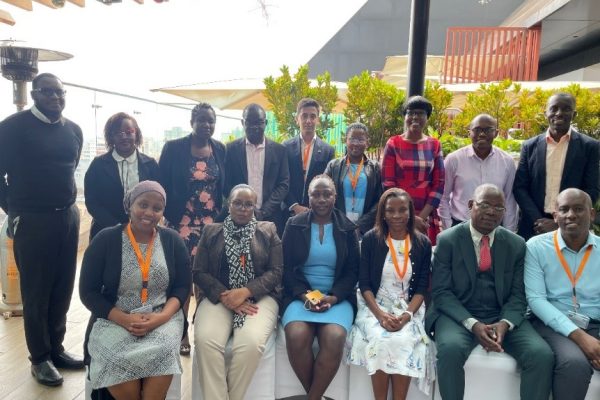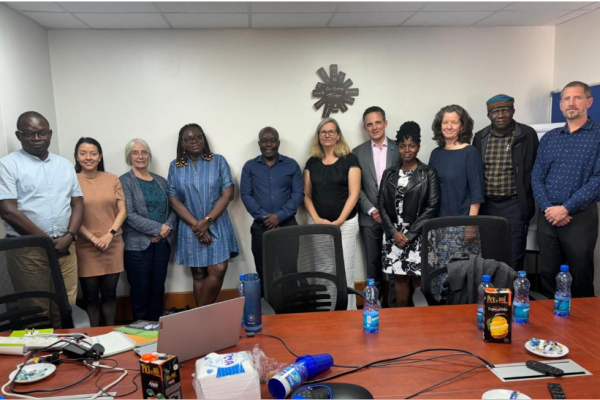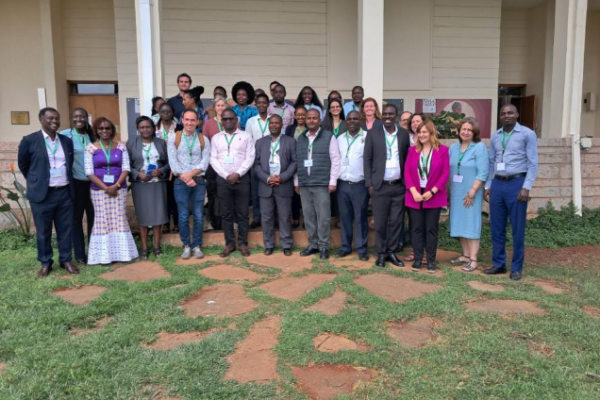
By Florence Onyango
Dr. Agevi leading the conversation on climate adaptation in Kenya
On July 18, 2024, a Focus Group Discussion (FGD) on the impact assessment of climate change adaptation interventions in Kenya convened stakeholders at the Heron Hotel in Nairobi. The Africa Research and Impact Network (ARIN), funded by the Foreign, Commonwealth & Development Office (FCDO), organised the event to gather insights on the effectiveness of various adaptation interventions within the country.
Dr. Humphrey Agevi opened the session by outlining the study’s purpose and welcoming participants. He emphasised the critical need to evaluate adaptation interventions to ensure alignment with Kenya’s climate priorities and enhance the nation’s resilience against climate change impacts.
Discussions on climate-resilient infrastructure highlighted opportunities for impactful interventions. Innovations in technology, indigenous knowledge, and robust financing and governance systems were identified as key areas for potential impact. Existing policies, such as climate action plans and County Integrated Development Plans (CIDPs), facilitate the implementation of resilient infrastructure through budgetary allocations. However, participants noted the need to present research data in formats easily understood by policymakers to advocate for scalable innovations.
Barriers to the adoption of these interventions include institutional limitations, financial constraints, and inadequate human and technological capacities. Proposed solutions included developing innovative financing systems, reviewing existing policies to meet current demands, and using reliable data for informed decision-making. Ensuring sustainability requires national and local leadership to enforce adherence to policies during project planning and implementation. Additionally, engaging communities and enhancing their capacities are crucial for fostering project ownership and sustainability.
The session on nature-based solutions (NbS) underscored their dual role in mitigation and adaptation strategies. Mitigation efforts include restoring degraded forests and growing drought-resistant crops, while adaptation measures involve creating green spaces in urban areas to mitigate emissions and heat waves. Integrating indigenous knowledge into these solutions was highlighted as a way to enhance their effectiveness.
However, capacity and knowledge gaps, insecurity, and lack of community involvement pose significant barriers to implementing NbS. To overcome these challenges, participants suggested inclusive policy formulation and leveraging local knowledge. Involving local communities in the planning and implementation phases ensures long-term sustainability and project ownership. Successful examples like the Mikoko Pamoja project illustrate how inclusive collaboration among communities, scientific bodies, and governmental entities can lead to effective adaptation interventions.
Water emerged as a major priority in discussions on the Water-Energy-Food-Ecosystems (WEFE) nexus. Participants argued that prioritizing the water sector would inherently support agriculture and energy production, highlighting the interconnected nature of these sectors. Proposed activities included water harvesting to mitigate flooding in areas like River Nyando and Yala and investing in technological innovations such as groundwater recharge.
Institutional barriers, such as governance issues and lack of coordination, and social barriers, including community disengagement, hinder the implementation of WEFE nexus interventions. To address these, participants called for improved resource mobilisation, coordination mechanisms at both national and local levels, and the involvement of non-governmental organisations in implementation efforts. National leadership should develop and enforce policies, while local leadership should engage communities and oversee the implementation of these interventions.
Dr. Joanes Atela, Executive Director of ARIN, concluded the FGD by emphasizing the urgent need to shift focus. With the impacts of climate change now well-documented and evident, he argued time is rife to move beyond understanding the causes and effects. Instead, we should prioritize identifying and implementing actionable solutions through evidence-based and innovative practices. He expressed his gratitude to the participants for their invaluable contributions and underscored the necessity of collaborative efforts to enhance climate adaptation interventions in Kenya.
The event featured key speakers, including Dr. Humphrey Agevi, Washington Kanyangi, and Dr. Joanes Atela. Florence Onyango attended the FGD to capture the proceedings in real time, facilitating widespread dissemination on ARIN platforms. A team of rapporteurs – Ann Irungu, Edna Kowenje, and Jerry Ariel – comprehensively documented the entire event. Rosemary Nzioka provided photographic coverage, while Tom Ogaga ably assisted with the event’s logistics.
This FGD is part of ARIN’s ongoing efforts to assess and improve climate adaptation interventions in East Africa, contributing to sustainable development and resilience building in the region. The project is funded by the FCDO.
© ARIN Press



